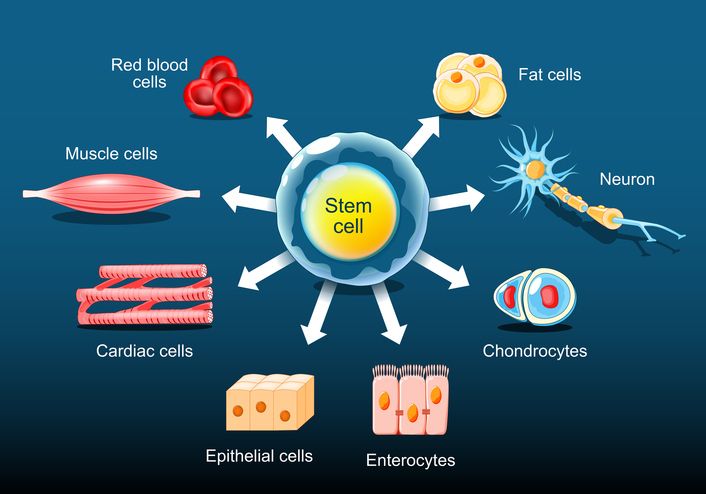
Book Now to Experience
Acne Treatment
1 Minute Self-Registration
Date should not be before minimal date
Author: Leila Tan|Updated: 23 July 2024
Are you tired of trying different facial treatments, acne medications for your acne without seeing results? If so, you're not alone. Acne is a common skin condition that affects millions of people around the world. Fortunately, there are a number of treatments available to help fight acne and get clear skin. In this blog post, we'll explore some of the most effective treatments for acne and discuss how you can use them to finally win the battle against your stubborn acne, and achieve clear skin.

1
What is acne?
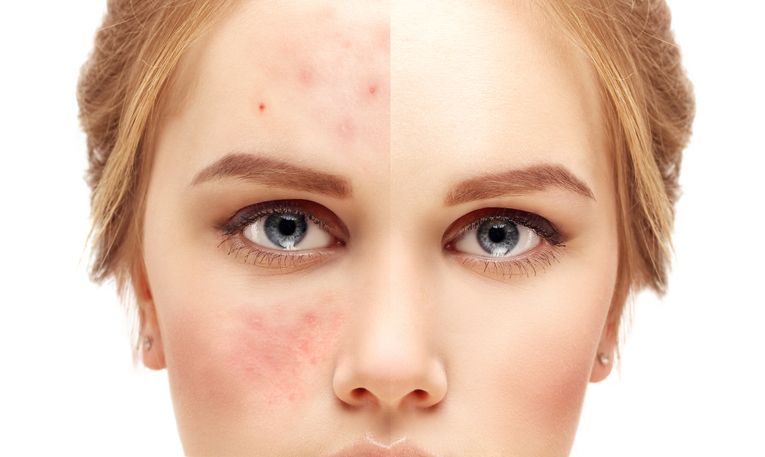
Acne is a common skin condition that occurs when the pores of the skin become clogged with dead skin cells, oil, and bacteria. Symptoms of acne range from mild whiteheads to severe cysts and can affect people of all ages. While there is no single cure for acne, there are various acne treatment options that can help to reduce and prevent outbreaks. These treatments include medications such as topical creams, oral antibiotics, retinoids, and light therapy. Home remedies like honey, aloe vera, tea tree oil, and apple cider vinegar can also be used to treat mild acne.

2
Causes and types of acne
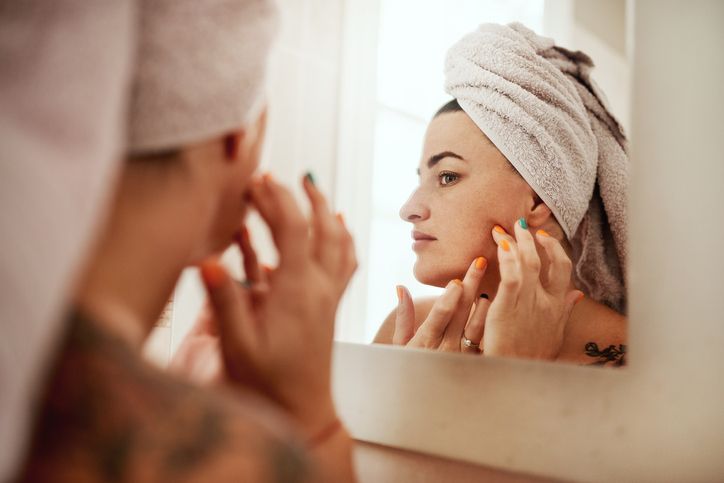
Acne can cause a variety of issues such as pain, irritation, and inflammation. While there are many factors that can contribute to acne, some of the most common causes include hormonal changes, bacteria, clogged pores, and poor hygiene. In addition, certain types of acne can be caused by genetics and lifestyle choices such as diet and stress.
Acne is typically categorized into four main types: non-inflammatory, inflammatory, nodular, and cystic. Non-inflammatory acne includes blackheads and whiteheads, which are caused when dead skin cells and oils clog the pores. Inflammatory acne is characterized by red bumps and can sometimes cause scarring. Nodular and cystic acne are more severe forms of inflammatory acne, characterized by large, painful bumps that can last for weeks or months.
No matter what type of acne you have, it’s important to seek professional help if your symptoms become persistent or bothersome. A dermatologist can provide an effective acne treatment plan tailored to your individual needs, which may include topical creams, prescription medications, laser therapy, or other treatments.
Additionally, you may want to try natural remedies like benzoyl peroxide, tea tree oil, green tea, probiotics, honey, aloe vera, apple cider vinegar, and zinc for an added boost in treating your acne. Sometimes this acne can leave scars and to get rid of the scars you may want to do dedicated acne scar treatments to see the results.
Read More

3
Benzoyl peroxide
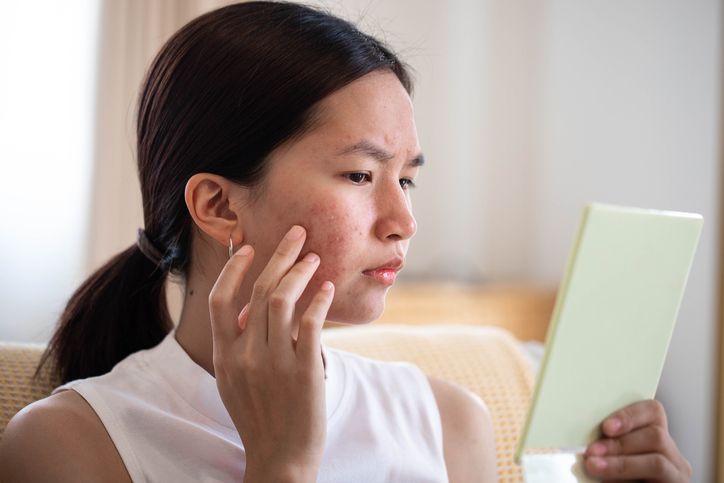
Benzoyl peroxide is one of the most popular acne treatments used today. It works by killing the bacteria that cause acne and reducing inflammation. When applied topically, benzoyl peroxide penetrates the skin and unclogs pores, allowing the skin to heal and preventing new blemishes from forming. Benzoyl peroxide also helps to dry out existing acne lesions, which can help reduce redness and inflammation. It is available in a variety of strengths and formulations, so you can find a product that best suits your needs.
Because it has an antibacterial effect, it’s important to use a gentle cleanser with benzoyl peroxide as too strong of a cleanser could irritate the skin. Benzoyl peroxide is an effective treatment option for mild to moderate acne but may not be strong enough for more severe cases.

4
Salicylic acid
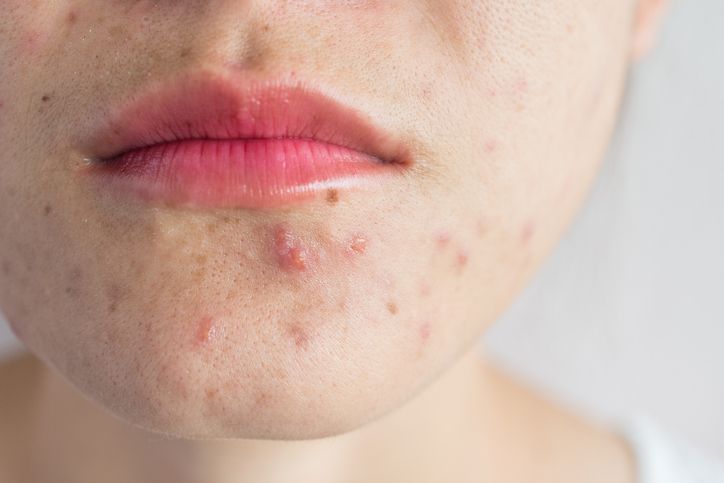
Salicylic acid is one of the most popular and effective treatments for acne. It works by exfoliating the skin and breaking up the sebum that clogs pores and leads to breakouts. Salicylic acid also helps to reduce inflammation, reduce redness and swelling, and unblock hair follicles.
Salicylic acid works by exfoliating the top layer of the skin and loosening dead skin cells that clog pores. This helps to open pores, remove excess oil and dirt, and stop acne from forming. Salicylic acid also has anti-inflammatory properties which help to reduce redness, swelling, and irritation. There are many products on the market today that contain salicylic acid as an active ingredient, including cleansers, gels, lotions, creams, toners, and spot treatments. You should look for products that contain between 0.5% to 2% of salicylic acid for best results.
It is important to use salicylic acid carefully and only as directed by the manufacturer. Overusing salicylic acid can dry out your skin and cause irritation, so be sure to follow the directions closely. Start with a small amount of product and slowly build up over time until you find the right balance that works best for your skin type.

Book Now to Experience
Acne Treatment
1 Minute Self-Registration
Date should not be before minimal date

5
Non invasive treatment
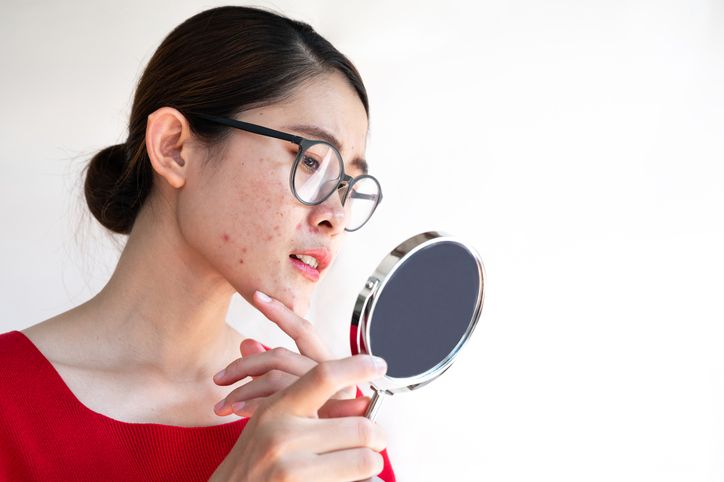
Non-invasive treatments for acne are becoming increasingly popular, as they provide a non-surgical option for those suffering from acne. Non-invasive treatments generally include chemical peels, light therapies, and laser treatments, all of which can be done in a clinic or doctor's office.
Chemical Peels
Chemical peel is the application of a chemical solution to the skin that causes it to peel off the top layer of dead skin cells, helping to reveal a new layer of skin that is often clearer and smoother than before. Chemical peels can be used to treat mild to moderate cases of acne and can be tailored to individual skin types.
Light Therapy
Light therapy, also known as phototherapy or intense pulsed light, uses various wavelengths of light to treat acne. It can be used on its own or combined with other treatments such as chemical peels or antibiotics. In light therapy, the skin is exposed to blue light or red light for about 20 minutes at a time, and studies suggest that this helps to reduce acne-causing bacteria.
Laser Treatment
Laser treatment involves directing short pulses of laser light onto the skin to remove the outer layer of damaged skin cells and help clear up any existing acne. This treatment is usually done in a doctor’s office or clinic and can cause some minor discomfort or irritation. Laser treatment is generally recommended for moderate to severe acne that does not respond to other treatments.
Overall, there are many options for non-invasive treatments for acne, each with their own set of benefits and drawbacks. It is important to speak with your doctor or dermatologist to decide which treatment is right for you. With careful consideration, these treatments can help improve your complexion and help you achieve clearer, brighter skin too.

6
Daily skincare routine
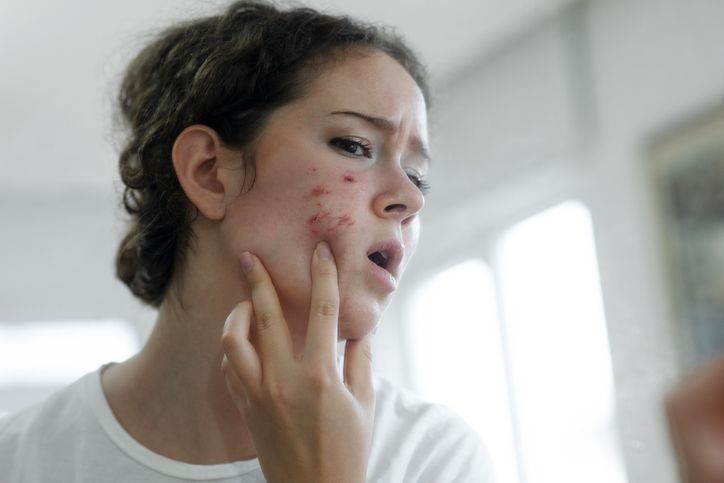
Having a consistent daily skincare routine can help to prevent and treat acne breakouts. Here are a few tips to get you started:
1. Wash your face twice a day with a gentle, non-irritating cleanser that contains salicylic acid or benzoyl peroxide to unclog pores and reduce oiliness.
2. Follow up with a light moisturizer or facial oil to hydrate your skin and keep it balanced.
3. Apply a spot treatment with salicylic acid or benzoyl peroxide as needed to target individual pimples.
4. Use a gentle scrub or chemical exfoliant one to two times a week to remove dead skin cells and further unclog pores.
5. Wear sunscreen every day, even when it’s cloudy, to protect your skin from UV damage and help reduce the risk of scarring.
6. Avoid touching your face throughout the day and never pick at or pop pimples, as this can lead to infection and further inflammation.
7. Drink plenty of water throughout the day to keep your skin hydrated and flush out toxins from your body.
8. Keep your hair away from your face and be sure to wash it regularly to avoid extra oil buildup on your skin. If you have long hair, use a satin pillowcase which is less likely to irritate skin than cotton.
9. Get enough sleep every night and try to manage stress in healthy ways such as yoga, meditation, and exercise.
10. Eat nutrient-rich foods such as fruits, vegetables, healthy fats, and lean proteins which will support overall health and clear skin.
11. Lastly, talk to your doctor or dermatologist if over-the-counter solutions aren't working; they may suggest prescription medications such as oral antibiotics, topical retinoids, hormonal treatments, or laser therapies depending on the severity of your condition. With patience and commitment, you'll find yourself fighting acne and winning with clear, glowing skin!
Read More

7
Oral medications
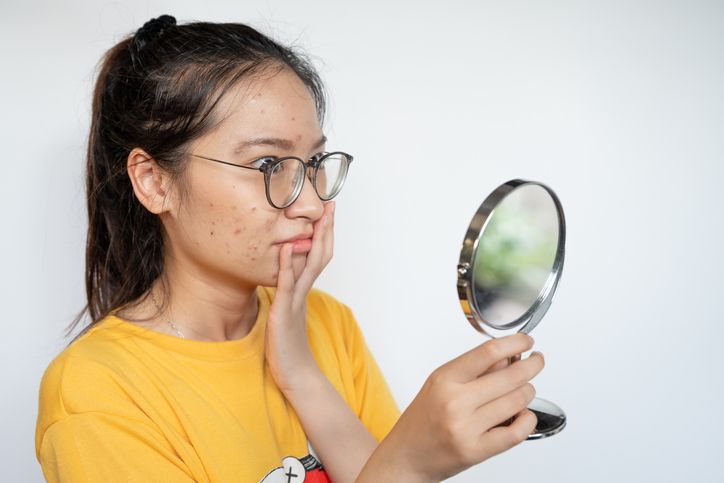
Oral medication is a great option for those looking to treat their acne. Oral medications work by reducing inflammation and killing bacteria, as well as unclogging pores to prevent new blemishes from forming. Many medications have been developed to treat different types of acne, from mild to severe. These include:
1. Isotretinoin (Accutane): This is a powerful medication that is taken orally for severe cases of cystic acne or acne that does not respond to other treatments. It works by shrinking the sebaceous glands and decreasing the amount of oil produced in the skin.
2. Antibiotics: Antibiotics can help fight off bacteria that cause acne. These antibiotics include tetracycline, doxycycline, minocycline, and erythromycin. They can be used in combination with topical treatments for acne bacteria for better results.
3. Oral contraceptives: For women with acne, birth control pills may be prescribed to reduce androgen levels in the body. This helps reduce the production of sebum, which can lead to breakouts.
4. Hormone therapy: Hormone therapy may also be used for women with hormonal acne, in which the hormone imbalance is causing acne outbreaks. This type of treatment works by adjusting the hormones in the body to a more balanced level.
The most important thing to remember when taking any oral medication for acne is to follow your doctor's instructions carefully. If you are taking an antibiotic, it is important to finish the entire course of treatment, even if your skin begins to clear up after a few days. This will ensure that all of the bacteria has been eliminated and reduce the chance of the infection recurring. It is also important to consult your doctor if you experience any side effects while taking these medications.

8
Acne Treatment - New Beauty
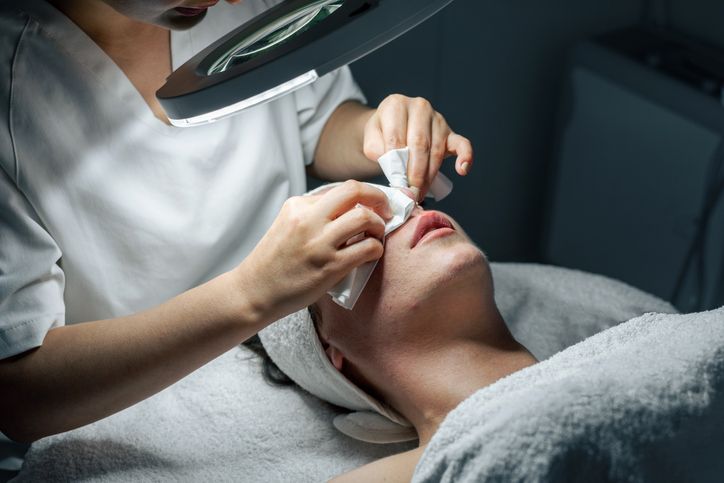
The Acne Treatment is a new treatment from New Beauty for skin that is prone to breakouts. First, the dual spiral suction plus drainage technology exfoliates dead skin cells and clears clogged pores at the same time, reducing acne infection and inflammation. The face is then treated with a moisturizing serum to control sebum output and encourage collagen synthesis. Future breakouts of acne are less likely if there is insufficient oil. Acne, blemishes, blackheads, whiteheads, pockmarks, enlarged pores, dry skin, acne scars, and dull skin tone are all goals of the acne treatment. Seize the opportunity to revive bright skin and increase your self-esteem!
What can you get from this treatment?
Eliminate dead skin cells: Excess dead skin cells are removed using dual spiral suction and drainage technology to keep pores from becoming clogged in the future.
Hydrating Essence: A medical-grade moisturizing serum may penetrate the deepest layers of the skin to nourish and hydrate the skin tissues while also soothing acne-prone skin. Additionally, it soothes the sebaceous glands to stop overproduction of oil.
Visible Results: You will have less acne breakouts, acne scarring, and various types of acne as the treatment goes on. Watch as your skin becomes healthier, more moisturized, and lighter with less of an oily sheen!
Non-invasive Treatment: The acne treatment is non-invasive, so there is no need for oral antibiotics, surgery, incisions, injections, or acne medication. Most persons with moderate to severe acne, according to our in-house beauticians, are candidates for this treatment.
Step by step procedure of this treatment
Step 1: The consultant will outline the procedure's steps and theoretical underpinnings. The beauty therapist then performs a patch test to see skin texture and make sure the probe hasn't caused any irritation.
Step 2: The hoover microdermabrasion and deep cleaning process is started by the twin spiral suction/drainage probe. Exfoliation is used to remove dead skin cells, oil, and grime that have been trapped in the pores and on the surface of the skin. The acne inflammation and infection should gradually subside if the pollutants are removed.
Step 3: To balance the water-to-oil ratio, calm the oil glands from future overproduction of oil, and promote collagen growth, the moisturizing serum is injected into the unclogged skin. This results in treating acne, fewer new outbreaks, and a finer complexion for the skin.

Book Now to Experience
Acne Treatment
1 Minute Self-Registration
Date should not be before minimal date

9
When to see a doctor
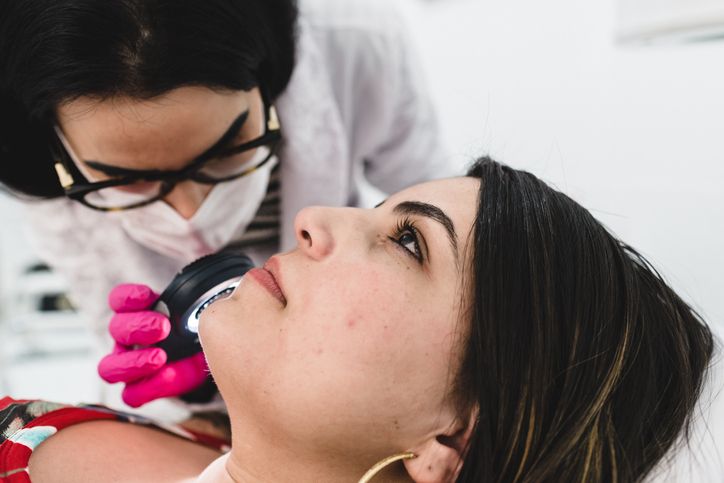
If your acne is not responding to home remedies or over-the-counter treatments, it may be time to see a doctor. Additionally, if you experience any of the following symptoms, you should seek medical advice as soon as possible:
• Severe cystic acne that does not respond to treatment
• Acne that covers large areas of the face, chest or back
• Pus-filled cysts that cause scarring
• Extreme redness and inflammation
• Painful, sensitive lesions
• Dark spots or discoloration on the skin
It is also important to see a doctor if you are concerned about how your acne is affecting your mental health. A doctor can help recommend treatments and lifestyle changes to improve your wellbeing and manage your acne.
Finally, it is important to note that while home remedies and over-the-counter medications can be helpful, they are not a substitute for professional medical advice suitable treatment alone. If you are experiencing any of the above symptoms, it is best to consult a dermatologist or other healthcare professional for personalized advice and treatment options.

10
Conclusion
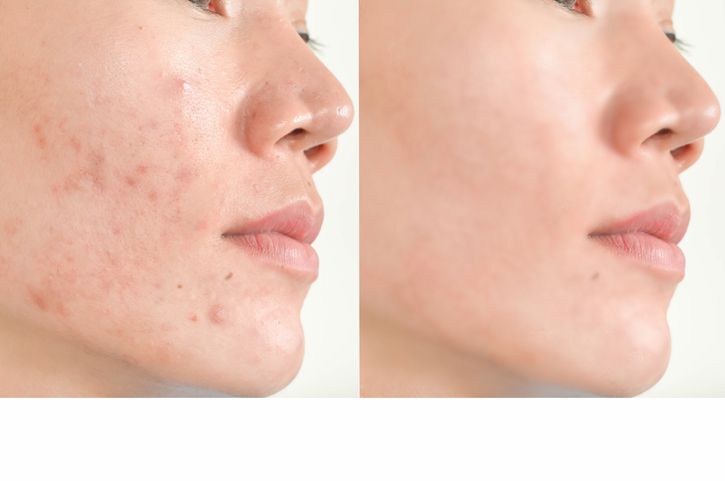
Acne can be an embarrassing and often distressing skin condition. However, with the right treatment plan, it is possible to manage acne successfully. It is important to know when to see a doctor for acne treatment so you can get the most effective treatment according to your skin concerns and severity of your acne toquickly reduce symptoms.
FAQ
Does eating sweet foods affect my acne?
Eating greasy food or chocolate has very little to no impact on acne.
What is adult acne?
Acne can sometimes persist until adulthood. 3% of adults over the age of 35 have acne. Most of the same factors that contribute to acne in teenagers also influence acne in adults. Inflammation, bacteria, sticky skin cells clogging pores, and excessive oil production are the four causes that directly cause acne.
Can I wear makeup when I have acne?
Makeup can be incredibly effective at covering acne, but if you choose the wrong concealer or apply it too thickly, it can also serve to highlight blemishes. When covered in heavy makeup, the redness and peeling that many acne treatments leave behind might appear considerably worse.

Book Now to Experience
Acne Treatment
1 Minute Self-Registration
Date should not be before minimal date
Recommended Articles
COPYRIGHT© NEW BEAUTY MANAGEMENT LIMITED 2026. ALL RIGHT RESERVED.


